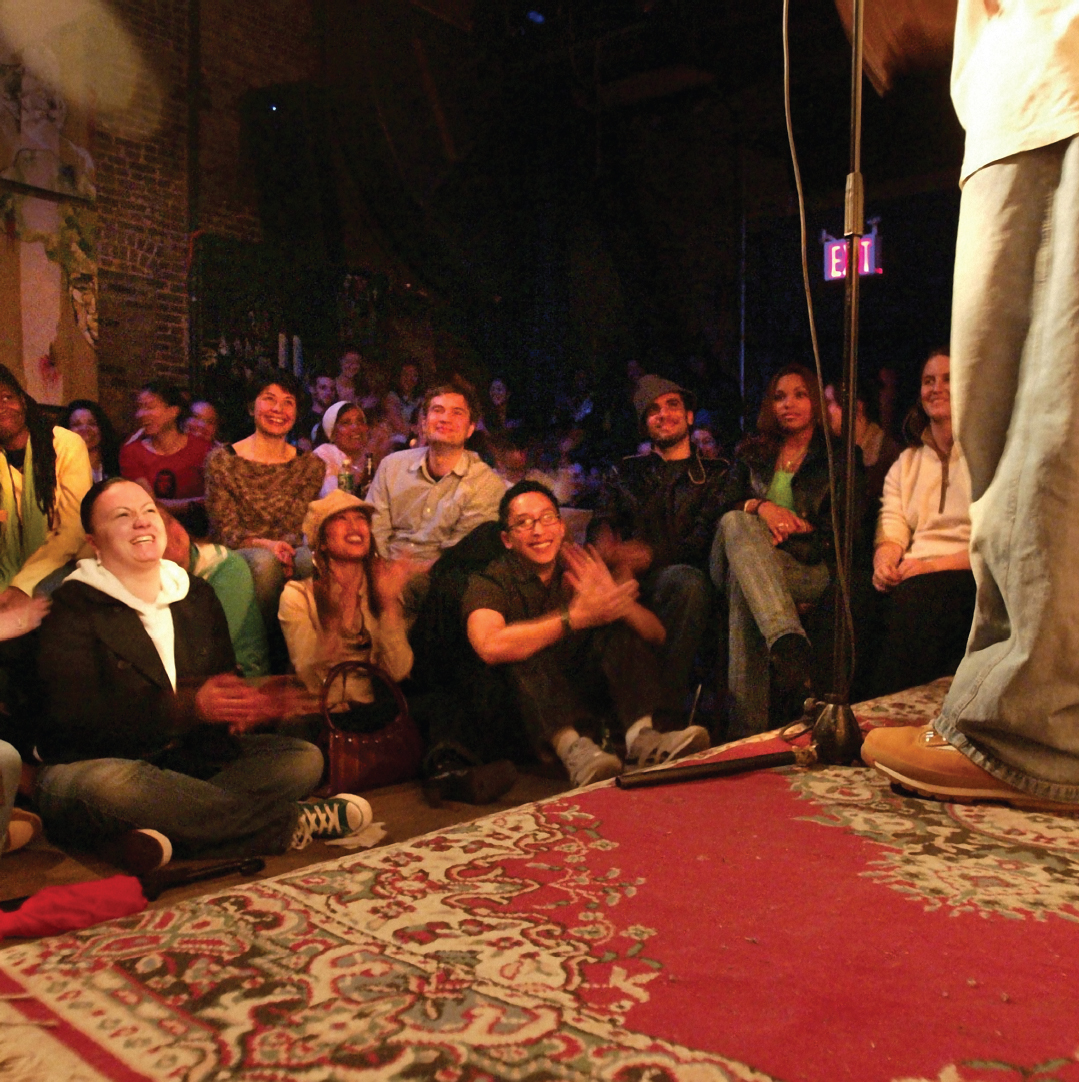Chapter 5
As a poet, motivational speaker, and actor, Ed Mabrey spends his life carefully crafting his words. His hard work has paid off. Mabrey is a two-time winner of the Individual World Poetry Slam Championship (2007 and 2012).1 In this annual competition featuring dozens of the world’s best performance poets—each of whom is a champion in his or her home region—Mabrey and others get to show off their unique talents. Mabrey’s recent victories have cemented his status as one of the finest performance poets ever: two-time Haiku slam champion, 2012 Poetry Slam Artist of the Year, and four-time National Poetry Slam Finalist.
Poetry slam is the competitive art of performance poetry. Unlike written poetry, which is designed to be read, performance poetry is created to be spoken in front of a live audience. At poetry slams, judges assess poets and award them points. Although slams vary in their rules, most require that the poems be brief and that poets perform without props, costumes, or musical instruments. Poets are judged solely on their choice of words and the emotion with which these words are communicated to the audience.
The poetry performed at slams varies widely in topic—everything from comedy to social commentary, inner reflection to outward expression of love. Champion Ed Mabrey’s poetry focuses on his view of world events, his close relationships, and even casual encounters. His poem “Pursuit of Happyness,” for example, is about a conversation with a homeless person at a Subway restaurant.
No longer limited to coffee shops or bookstores, poetry slams also exist online. Poetry Slam, Inc., which organizes national and international competitions, hosts a video slam contest, in which poets submit videotaped performances and have online audience members vote for the one they like best. A recent winner of the video slam was Kait Rokowski, who provided a blistering performance regarding gender roles and sexual assault (you can see Kait’s poem on YouTube).
But despite the diversity among poets, poetic content, and medium, the common theme that runs throughout all performance poetry is the importance of carefully choosing clear, honest, and understandable language packed with powerful meaning. Poets seeking to win slams can’t just craft language into small, elegant poems. They must verbally communicate their creations to audiences in a competent fashion. Although poetry slams are highly competitive—poets intensely vie with one another for points and tenths of points—they are ultimately about celebrating the communicative power of the spoken word. As poet Allan Wolf describes, “The points are not the point; the point is poetry.”

You may not be a performance poet like Ed Mabrey or Kait Rokowski, facing audiences and judges who evaluate you through points. But you are judged just the same, every single day, based on the words you choose. If you competently communicate to others, you’re awarded “points” in the form of people liking you, being influenced by you, or judging you to have desirable skills—like being “an amazing speaker” or “a skilled conversationalist.” Regardless of your personal rhyme or reason, your words pack a potent punch in shaping others’ impressions of you. As a consequence, it’s important to understand the power of verbal communication and how to use it competently. In this chapter, you’ll learn:
- The four defining features of language
- Strategies for creating understandable messages and taking responsibility for your words
- How to use language that avoids gender bias and is mindful of cultural differences
- Ways to manage the challenging aspects of verbal communication